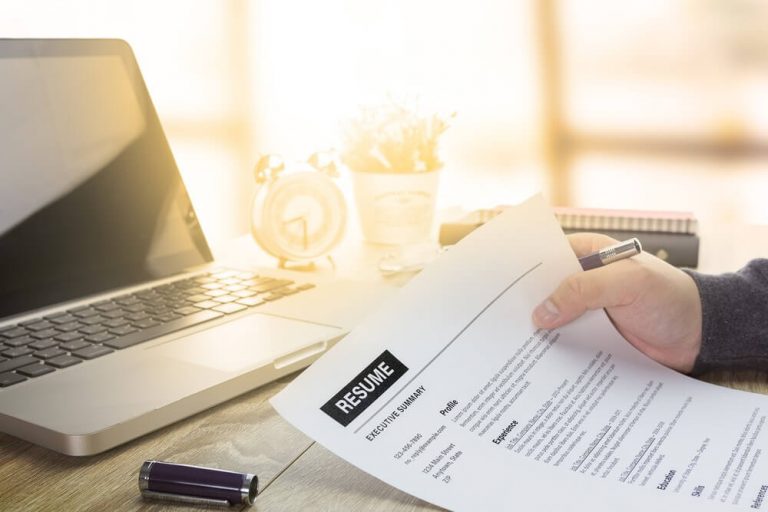1. Get focused on the objective of your resume
The objective of your resume is to win you an interview. It’s that simple. It’s not the life and times of your role. Keep it stylish, professional and succinct. Make it want to be read.
2. Know what recruiters look for
In the five second screening recruiters are looking reasons not to pick your resume. If they don’t see the labels they are looking for they will not put you in the ‘yes’ pile.
These labels are generally:
- Personal details (name location etc)
- Knowledge (qualifications, schools and universities)
- Skills (technical and technological)
- Experience (employer brand names and responsibilities, achievements)
- Career objectives
3. Make it relevant to the job or employer in question
Spend the time to make sure your resume fits the job application (or employer) otherwise you’re unlikely to win an interview. This means tailoring the skills and experience you have to the job or employer in question. It does not mean being liberal with the truth. If you have to do that then you are not right for the role.
4. It’s your advert – there is no right or wrong
There is no right or wrong. It’s your advertisement and your resume. As such, it should reflect you. If you engage a resume writing service ensure that you spend the time to review and be satisfied with the final document.
5. Style – You are a professional, make it look professional
Even though 99% of resumes are now delivered electronically it is still imperative that your resume is professionally crafted. When it comes to formatting, less really is more. Keep the fonts legible and consistent and maximise use of space. There is no need to include your photo to your resume but for those that do want to, ensure it is a professional mug shot. If you do prefer to stand out and send your resume via traditional mail, make sure that paper your resume is printed is of a quality grade.
6. Length – 3-5 pages max
Depending on the stage of your career, your resume should really be no more than five pages long. Remember, it only needs to get you to interview. You can provide additional information on request.
7. Structure – Ensure a mix between functional / chronological
American resumes tend to be ‘functional’ displaying skills and experience but they often lack depth and don’t equate experience with employers. European resumes tend to be chronological and often gloss over skills. Try to achieve the best of both worlds in your resume.
8. Personal details
You don’t need to put age by law but your potential employer will often try to guess. You can help them or hinder them. They will also want to know where you live and if you have a valid work visa. If it’s not obvious, state that you do. Whatever you do, put your contact details where they can be found.
9. Knowledge (qualifications, schools and universities)
Potential employers will be more likely to interview you if you have the right educational and professional qualifications and less likely if you don’t. You can’t do anything about this at resume preparation stage except document what you do hold in entirity. This includes what stage you are at and your pass rate. This is important at all stages in your career.
10. Skills (technical and technological)
If it’s not obvious in the body of the resume, often a brief paragraph detailing your technical and technology skills will help to sell you.
11. Experience (employer brand names and responsibilities, achievements)
Employers like to see who you’ve worked for. They want to see job titles and a concise description of responsibilities and achievements so that they can start to visualise how you can add value to them in this position. Help them by equating your achievements to the requirements of the job.
12. Career objectives
If you’re starting out in your career or wanting to make a career change then restate your career goals.
13. Referees
I would suggest that you leave referee names off your resume but include a line saying that references can be provided on request. In this way you have more control over the recruitment process.
14. Salaries
This is an emotive issue. Employers will want to know your salary but it’s unlikely to be a deciding factor on whether to interview so I would leave it off the initial resume.
15 Objective review
Once you’ve prepared your resume, leave it a day or so and then try and read it objectively with the image of the one hundred resumes in your mind. If you have a close friend who will give you constructive advice ask them to review it also. We would also be happy to give you our professional view.
– See more at: http://www.myambition.com/2011/07/resumes-that-will-get-you-an-interview/#sthash.l2SQWRpm.dpuf
 Posted By: Eva Grabner | on February 10 2014
Posted By: Eva Grabner | on February 10 2014